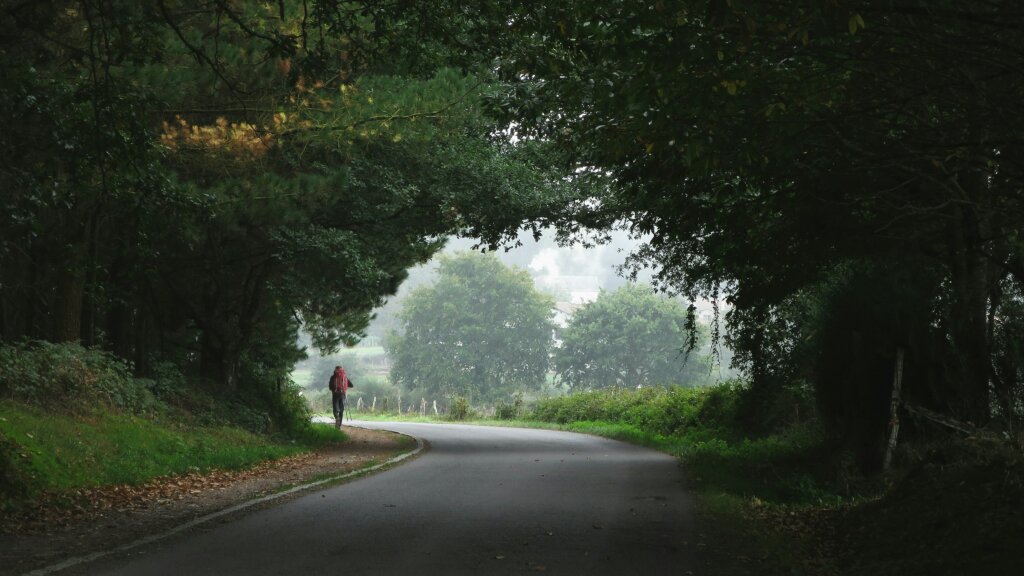In the small mountain community of Robbinsville, North Carolina sits a little church on the hill overlooking town. Robbinsville UMC is the only United Methodist church in Graham County, the 3rd least populated county in NC with 8,000 residents. It’s is a smaller rural congregation with about 50 folks on Sunday morning.
Nine years ago, three ladies from the church had an idea. Maryanne, Marcia, and June had been noticing an influx of Appalachian Trail thru hikers crossing the road outside of town on their long journeys north. The ladies had started picking up hikers and bringing them into town for food or medical care and wondered if this might be a ministry opportunity.
Now Robbinsville UMC leaves little bags of “trail magic” (protein bars, baby wipes, etc) and a note that says that the church is praying for the hikers and are glad to pick them up for a ride if they have any needs. It’s a simple act of kindness that goes a long way for hikers just getting their legs on a 2,000 mile walk from Georgia to Maine.
The volunteers at Robbinsville have noticed something over the years: a lot of the thru hikers are on a spiritual journey. As they ride to town, hikers share of losing loved ones, changing careers, marriages ending, and all kinds of major life events that lead to their long hikes. The journey is an opportunity for self-reflection and finding a new direction. The women have discovered that many of these hikers are spiritual pilgrims.
The Christian Spiritual Practice of Pilgrimage
Last year I picked up the book Pilgrimage as Spiritual Practice: A Handbook for Teachers, Wayfarers, and Guides. It’s helped me confirm a hunch that I had, that our culture is ripe for a resurgence of pilgrimage.
Pilgrimage is a spiritual practice of almost all the major world religions. It is a physical journey that represents a deeper spiritual journey. The act of walking moves us from our spiritual status quo towards something more. Jesus was a pilgrim. As a child he came to Jerusalem with his parents and as an adult the passion story unfolds in the midst of a pilgrimage.
In Christian history, there are several well-known pilgrimages, many of which center around Jerusalem. The Via Francegena, The Camino de Santiago, St. Cuthbert’s Way, and many more. An important aspect of a pilgrimage is the destination—typically a thin place, or a place where God’s presence feels close.
In one chapter of the book the author presents the 8 stages of a pilgrimage:
- Decision to embark on pilgrimage
- Preparation
- Journey
- Entering the sacred space
- Experience at the sacred site
- Completion
- Reintegration
- Integration of the experience
In this movement you see how individuals and groups can encounter the presence of God and be transformed through a journey. And the good news is a pilgrimage doesn’t have to be hundreds of miles. It can take place over a few days or even one day.
Unbundled Faith
Springtide Research, which studies the spiritual lives of Gen Z, has offered some great insights over the years. The most impactful on my ministry is the term “unbundled faith.” It’s a term that describes the phenomenon of young people borrowing spiritual practices from multiple faith traditions to construct their own spiritual lives.
Springtide found that a growing number of young people are not subscribing wholesale to one religion but are more interested in borrowing spiritual practices from various faiths. We can respond to this with dismay, or we can see it as an opportunity to witness to our faith by offering Christian spiritual practices to our neighbors who are seeking spiritual meaning.
Outdoor Fresh Expressions as Christian Pilgrimage
When the Pew Research Center asked Americans what provided meaning in their lives 47% said the outdoors. This was well above religious faith at 36%. Outdoor fresh expressions can offer the Christian spiritual practice of pilgrimage to our neighbors who would never step in the walls of the church on Sunday morning but would love to seek meaning outside.
In Western North Carolina we have a hiking fresh expression in Asheville that is resonating with Post-Christian neighbors (one of the leaders is just beginning an Appalachian Trail thru hike!). We have a fresh expression among paddlers at the Nantahala Outdoor Center. We’ve had groups of runners, golfers, paddle boarders, walkers, and more. All of these fresh expressions are tapping into the largely forgotten root of Christian pilgrimage. They are finding that getting outside and embarking on big (or little) journeys can have a profound spiritual impact on the church and our neighbors.



